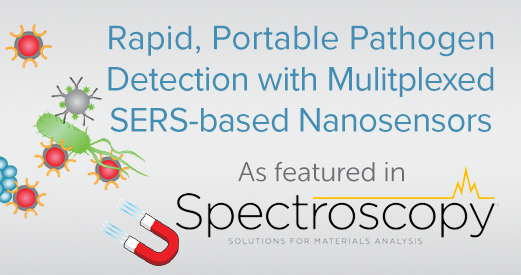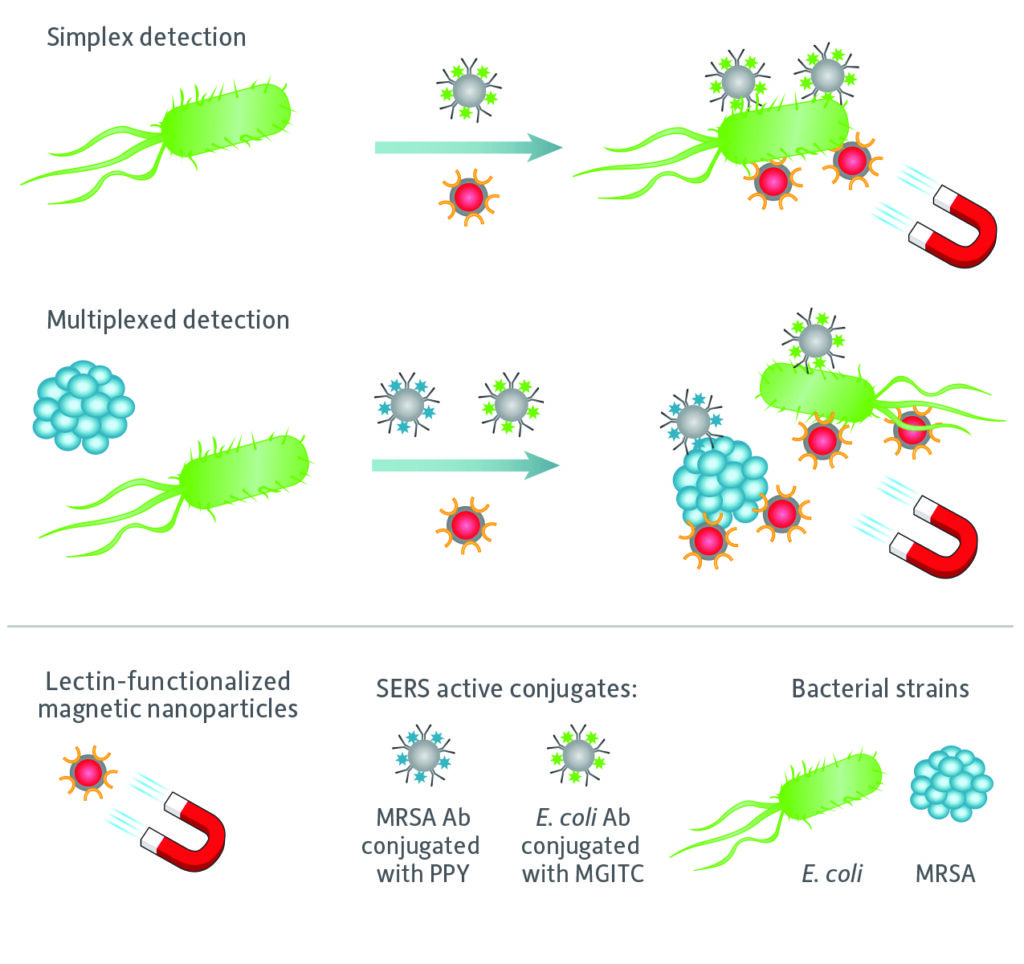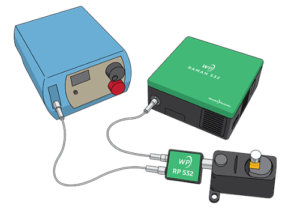
The article “Rapid, Portable Pathogen Detection with Multiplexed SERS-based Nanosensors” featured in Spectroscopy Magazine details a novel assay using surface-enhanced Raman spectroscopy (SERS) as a rapid, accurate and portable diagnostic tool to identify the cause of bacterial infections.
Antibiotic resistance rates are rising for many common pathogens, putting added pressure on healthcare providers to find a quick, but precise method for identifying the type of bacteria causing an infection, preferably at the clinic site, to enable targeted antibiotic treatment. Although resistance to antibiotic drugs can develop naturally, the greater cause of bacterial to selectively flourish, relative to weaker strains, is the widespread use and misuse of antimicrobial agents.
In this application, surface-enhanced Raman spectroscopy is used for quantifying low concentrations of pathogens with high reproducibility. The bacteria are captured and isolated using functionalized magnetic nanoparticles for rapid optical identification via SERS. Using a portable SERS system, the initial tests validated the ability to identify the presence of Escherichia coli and methicillin-resistant Staphylococcus aureus bacteria, quantifying concentrations down to 10 colony-forming units per mL (cfu/mL), with high reproducibility. The system was also able to discriminate between the bacteria within the same sample matrix at clinically relevant concentrations (103 cfu/mL).
 The field-deployable compact SERS setup used a Wasatch Photonics Raman spectrometer system, and required sensitivity, specificity, reproducibility, cost, portability, ease of use, and speed of analysis. The technique proved capable of detecting bacterial concentrations below the requirements for clinical diagnosis, was able to discriminate between bacterial pathogens in about an hour, and with minimal effort in preparing the sample, and demonstrated its potential as a field-deployable, rapid, reliable on-site diagnostic technique for use in healthcare, food, and environmental testing. As improvements are made to sample preparation time, and as systems continue to be miniaturized, this SERS-based nanosensor system has great potential for rapid, sensitive detection in a field-deployable format that could help to curb the spread of antimicrobial-resistant pathogens throughout the world using portable Raman spectroscopy systems.
The field-deployable compact SERS setup used a Wasatch Photonics Raman spectrometer system, and required sensitivity, specificity, reproducibility, cost, portability, ease of use, and speed of analysis. The technique proved capable of detecting bacterial concentrations below the requirements for clinical diagnosis, was able to discriminate between bacterial pathogens in about an hour, and with minimal effort in preparing the sample, and demonstrated its potential as a field-deployable, rapid, reliable on-site diagnostic technique for use in healthcare, food, and environmental testing. As improvements are made to sample preparation time, and as systems continue to be miniaturized, this SERS-based nanosensor system has great potential for rapid, sensitive detection in a field-deployable format that could help to curb the spread of antimicrobial-resistant pathogens throughout the world using portable Raman spectroscopy systems.
Read the full article in Spectroscopy Magazine’s June 2019 issue
June 1, 2019
Read more articles where Raman spectroscopy is used in healthcare, medicine and other bioprocesses.



